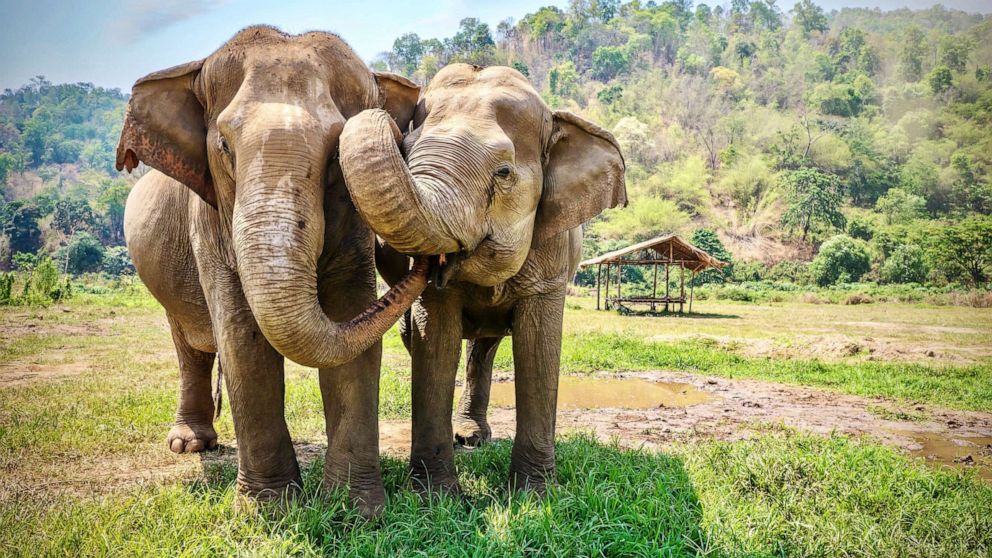
Elephants will cooperate to acquire food -- assuming there's enough
ABC News
"Different elephants have different kinds of culture, as well as personalities."
This is an Inside Science story.
Cooperation lies at the beating heart of most societies. For Asian elephants in a recent study, a bit of teamwork helped them access delicious bananas. A new study examines elephants' ability to work together for a reward and the circumstances that limit their capacity for cooperation.
Li-Li Li, a doctoral student at the Xishuangbanna Tropical Botanical Garden, part of the Chinese Academy of Sciences, said she chose to work on elephants because she had always longed to work with the biggest animals on the planet. Li and her colleagues also wanted to understand what motivated cooperation. Elephants, evolutionarily distant from primates, were a perfect vehicle for studying how cooperation could crop up in distant species.
Back in 2011, a group of researchers published a paper showing that Asian elephants in Thailand could cooperate to obtain food rewards on an out-of-reach table, using a rope they had to pull at the same time. They would wait for partners before pulling, showing they understood how cooperation worked and that their partner's behavior mattered for success. But in that first study, the researchers paired the elephants, so they couldn't choose their partners.
